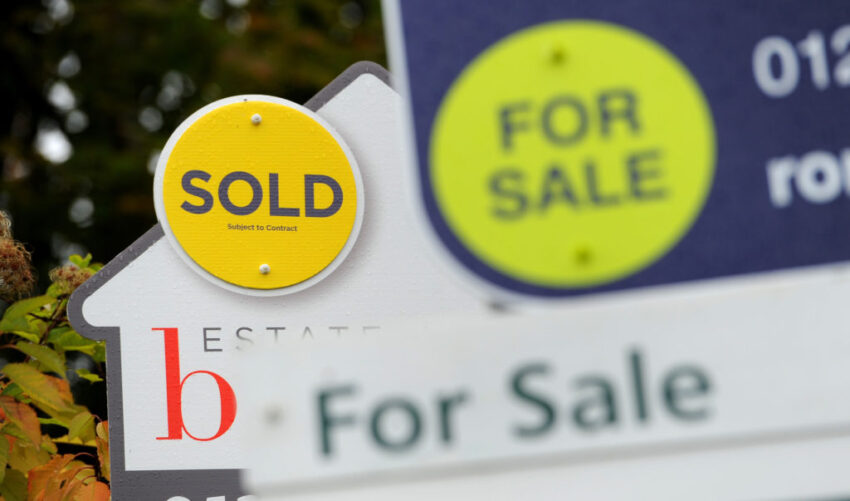House prices went into reverse in May as a faltering economy, pressure on household budgets and the prospect of interest rate rises dogged the market.
Figures from Nationwide Building Society show prices fell 0.2% month-on-month, the third fall in four months.
On an annual basis, price growth slowed to 2.4% from 2.6% in April.
Robert Gardner, Nationwide’s chief economist, said: “There are few signs of an imminent change. Surveyors continue to report subdued levels of new buyer enquiries, while the supply of properties on the market remains more of a trickle than a torrent.
“Looking further ahead, much will depend on how broader economic conditions evolve, especially in the labour market, but also with respect to interest rates.
“Subdued economic activity and ongoing pressure on household budgets is likely to continue to exert a modest drag on housing market activity and house price growth this year, though borrowing costs are likely to remain low.”
The average house price stood at £213,618 in May, slightly up from April’s £213,000.

Nationwide’s figures chime with official data that point to a slowing market, driven by London.
Recent figures from the Office for National Statistics (ONS) shows British house prices slid in March, with the capital recording its weakest performance since 2009.
The statistics body said the decline in London can be linked to reforms to stamp duty and the Brexit vote, which has deterred foreign buyers and seen net migration to the city fall.
#Nationwide report #UK #house #prices dipped 0.2% m/m in May, 3rd fall in 4 months (was marginal rise of 0.1% in April). Year-on-year increase back to 2.4% in May after rise to 2.6% in April from 7-month low of 2.1% in March (which was also equal lowest level sine June 2013)
— Howard Archer (@HowardArcherUK) May 31, 2018
Howard Archer, chief economic adviser at EY Item Club, said: “The housing market is clearly currently struggling to gain traction and we suspect that any meaningful upturn will remain elusive over the coming months.
“The fundamentals for house buyers are likely to remain challenging. Consumers have faced an extended serious squeeze on purchasing power, which is only gradually easing.
“Additionally, housing market activity remains hampered by relatively fragile consumer confidence and limited willingness to engage in major transactions.”


